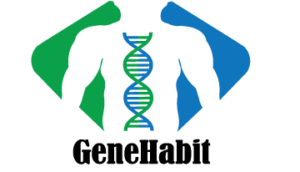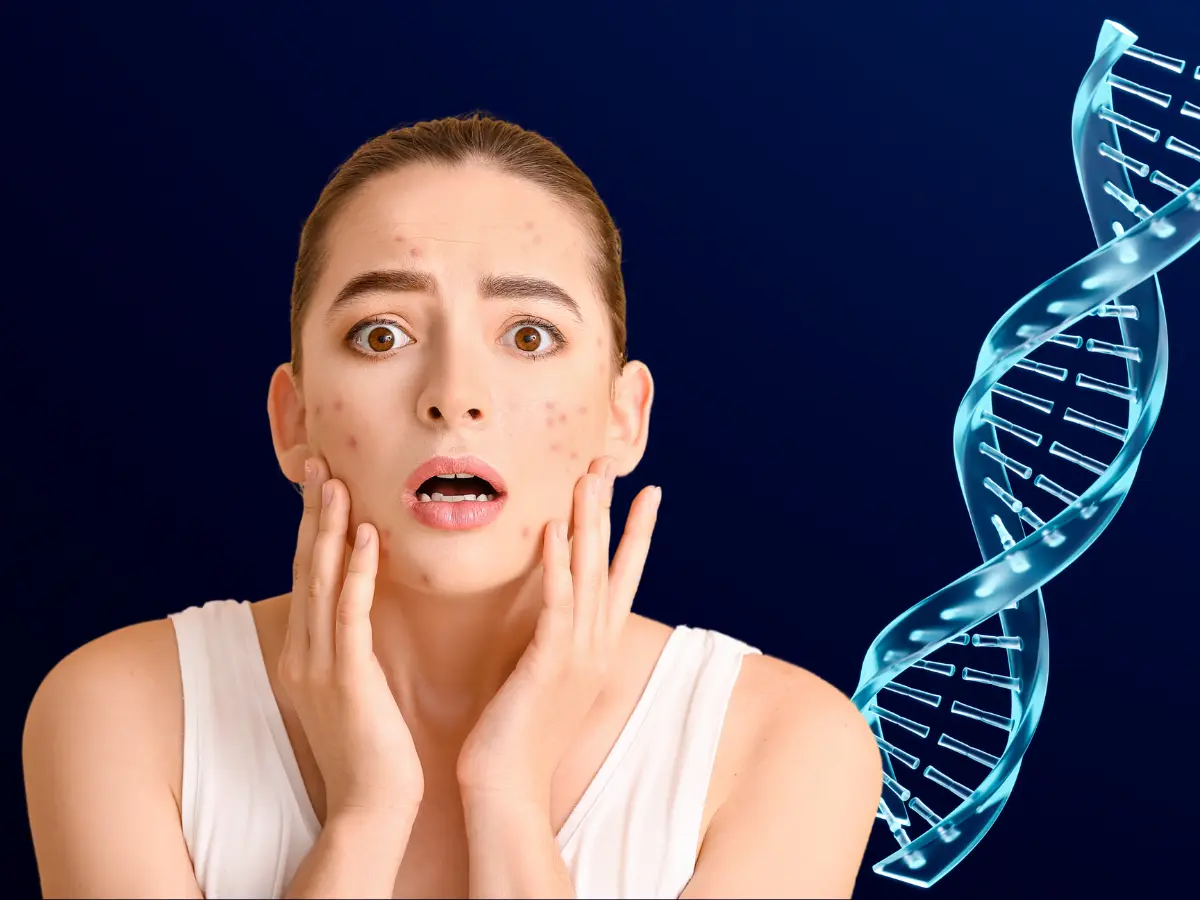How Long Does Biotin Take to Work: A Complete Guide
Introduction
Hair loss can be very distressing. Many people are always searching for ways to promote hair growth and improve hair health. One popular option that has garnered attention is biotin, also known as prenatal vitamins. Biotin is a B vitamin that is often touted as a remedy for thinning hair and brittle nails. But does biotin really work? How long does it take to see results? This guide explores the science behind biotin and its impact on hair growth. We will cover the role of biotin deficiency and ways to use biotin to improve hair health. We will also discuss the side effects of biotin. We will also explain how to choose quality biotin supplements. So, if you’re curious about how long does biotin take to work, keep reading! You can learn more about this popular supplement.
What Is Biotin?
Biotin, also known as vitamin B7, is a water-soluble B vitamin that plays a crucial role in the body. It is involved in the metabolism of carbohydrates, fats, and proteins. It helps convert them into energy. Biotin is essential for healthy hair, skin, and nails. It has become popular as a supplement for promoting hair growth.
The main function of this vitamin is to make keratin. It is a protein that forms our hair and nails. This also provides strength, flexibility, and smoothness to our hair strands. Without enough biotin, keratin production suffers. This leads to brittle, weak hair that breaks easily.
Vitamin B7 also helps with other body functions. It supports the making of fatty acids. These fatty acids are essential for healthy skin. It helps the body convert food into usable energy.
While our bodies can make some biotin, it is often recommended to take biotin supplements. This is to ensure adequate levels. Biotin supplements are available in various forms, including capsules, tablets, and gummies. The supplements provide a strong dose of biotin. They ensure that the body has enough of this vital nutrient.
Understanding Biotin and Its Impact on Hair Health
Vitamin B7 is a crucial nutrient for healthy hair. But, its impact on hair health goes beyond just providing the building blocks for hair growth. Biotin is part of the hair growth cycle. It controls hair follicle function and supports making keratin, the protein in hair.
The Biological Role of Biotin in Hair Growth And Scalp Health
To understand how vitamin B7 affects hair growth, we must look at the involved biology. The hair growth cycle has three phases. They are: the anagen phase (active growth), the catagen phase (transition), and the telogen phase (resting). Biotin helps in all of these phases. It does this by aiding the production of keratin.
During the anagen phase, biotin regulates hair follicle function. It promotes new hair growth. Biotin also plays a crucial role in the production of keratin, which makes up the structure of the hair. This protein makes hair strong and flexible. It stops breakage and helps hair grow well. Adequate biotin levels support the hair growth cycle.
How Biotin Affects Hair at the Cellular Level
Biotin’s impact on hair health goes beyond its role in the hair growth cycle. At the cell level, biotin helps in energy production. This is crucial for hair cell health. It ensures that hair cells have the fuel they need to work well.
It supports cellular energy and keratin production. It is crucial for hair health. Enough biotin ensures that hair cells get the energy and nutrients they need. This promotes hair growth and improves hair’s look.
Biotin Deficiency: Signs and Solutions
Biotin deficiency is rare, but when it does occur, it can have noticeable effects on hair health. Signs of biotin deficiency include hair loss, brittle nails, and dry skin. You may also have fatigue and muscle pain. If you think you lack biotin, ask a healthcare provider. You need a proper diagnosis and treatment. To fix the deficiency, take biotin supplements.
Recognizing the Symptoms of Biotin Deficiency
Biotin deficiency can show up in many ways. Recognizing the symptoms is key to fixing the deficiency. One of the most noticeable signs of biotin deficiency is hair loss. People with low biotin may have hair thinning. They may also have shedding and bald patches. In addition to hair loss, lack of biotin can cause brittle nails. Nails may become weak, easily breakable, and may develop ridges or grooves. Other symptoms of biotin deficiency can include dry skin, fatigue, and muscle pain. If you have these symptoms, see a healthcare provider. They will check for a biotin deficiency and explore solutions to improve hair health.
Who is at Risk and Why?
While vitamin B7 is rare, certain individuals may be at a higher risk. Pregnant women need more biotin. It supports the growth of the fetus. People with digestive issues, like Crohn’s disease, may struggle to absorb biotin from food. This raises the risk of deficiency. Heavy drinkers may also be at risk. Excessive alcohol can block biotin absorption. Certain medications, like seizure drugs, lower biotin over time. Older adults may also be more susceptible to biotin deficiency. This is because they have age-related changes in nutrient absorption. Knowing the risk factors for biotin deficiency can help people take proactive steps. They can ensure they get enough biotin from their diet or supplements.
Maximizing Hair Health: The Role of Genetics and Nutrition
Biotin is crucial for hair health. However, many factors contribute to hair health. Genetics, for example, can influence hair growth patterns, hair texture, and hair density. Additionally, diet plays a significant role in hair health. A balanced diet has essential nutrients, vitamins, and minerals. It can help hair grow and improve its health. By considering both genes and diet, people can take a holistic approach. It will help them maximize hair health. It will also support the benefits of biotin supplements.
Genetic Factors in Biotin Absorption and Hair Growth
Biotinidase deficiency is a genetic disorder inherited from parents to children. It is a rare autosomal recessive disorder. In this condition, it prevents the body from releasing free biotin. This leads to biotin deficiency despite having enough biotin in the diet. Genetic factors also affect how our bodies absorb and utilize biotin. Some people may have genetic variations. These affect their ability to absorb and process biotin. This leads to lower biotin levels in the body. This can contribute to hair loss or thinning hair. Understanding your genetic makeup can help identify any potential deficiencies. It can guide you to personalized ways to improve hair health.
Biotin-Rich Foods to Incorporate into Your Diet
1. Eggs: The egg yolk is a biotin jackpot. Scramble up some eggs for breakfast or make an omelet for dinner.
2. Salmon: This fish packs a double punch with biotin and omega-3s. Fire up the grill or bake a salmon filet with lemon and herbs.
3. Avocado: The smooth, creamy green goodness of avocado is a biotin blessing. Mash it up on toast or dice it into salads.
4. Nuts and seeds: Snack on a mix of almonds, walnuts, sunflower, and pumpkin seeds for biotin galore.
5. Leafy greens: Spinach, kale, and Swiss chard have biotin and other hair-healthy nutrients. Toss them in salads and sides.
Personalized Approaches to Enhancing Hair Health with Biotin
Each individual has unique needs when it comes to hair health. Personalized approaches can help find the right biotin dose. They can also identify any other helpful interventions. You need to consult with a healthcare provider. This is essential to assess your needs and make a plan. The plan will include biotin supplements, balanced nutrition, and other strategies. They will be tailored to your hair goals. Take a personalized approach. By personalizing your approach, you can optimize how well biotin promotes hair growth.
Determining the Right Biotin Dosage for You
You need the right biotin dose. This depends on many factors. It includes your health, any deficiencies you have, and your hair goals. You should consult a healthcare provider. They can assess your needs and recommend the right dosage. Adults should have 30 micrograms of biotin each day. But, some may need more based on their unique needs.
Supplemental Sources: Pills vs. Natural Foods
Obtaining vitamin B7 has two main sources: supplements and natural foods. Biotin supplements provide a concentrated dose of the vitamin. This makes it easier to meet your daily requirements. However, you must choose quality supplements. Get them from reputable brands to ensure their efficacy and safety. But, adding biotin-rich foods to your diet can provide a balanced way to get this vital nutrient. You should eat foods like eggs, salmon, avocados, and nuts. They can improve your nutrition. It can also promote healthy hair growth.
What Dosage Should I Take for Maximum Effect?
The right biotin dosage for the best effect depends on many factors. These include your needs and any deficiencies. You must talk to a healthcare provider. They will assess your situation and suggest the right dose. The recommended daily intake for adults is 30 micrograms. But, some people may need higher doses to get the desired results. Biotin alone may not greatly improve hair growth or hair health. It’s often used as part of a holistic approach. This approach includes balanced nutrition and proper hair care. It also includes other interventions tailored to your needs.
Navigating the Market: Choosing Quality Biotin Supplements
Many biotin supplements are on the market. Choosing a good one can be hard. It’s essential to prioritize quality and effectiveness when selecting a biotin supplement. Look for reputable brands. They have undergone tough testing and stick to strict quality standards. Read customer reviews and consider consulting with a healthcare provider for recommendations. Choose a high-quality biotin supplement. This way, you can ensure you get the most from your supplements. You will also support your hair health well.
What to Look for in Biotin Supplements
When choosing a biotin supplement, there are many factors to consider. Two main factors are its quality and effectiveness. Look for supplements that had independent testing. They should have clear lab test results for you to see. This makes sure the product has the stated amount of biotin. It also meets quality standards. Additionally, consider the form of biotin in the supplement. Pure biotin, also called D-biotin, is the most biologically active. The body absorbs it readily. Lastly, check for more ingredients and allergens in the supplement. Carefully evaluate these factors. Then, you can choose a good biotin supplement. It will support your hair health well.
The Pros and Cons of Biotin-Infused Hair Care Products
Hair care products with biotin have gained popularity. They are thought to promote healthier hair. These products usually contain biotin. They also have other good ingredients. These aim to improve the hair’s condition. Biotin-infused products can help. But, healthy hair needs more than just external treatments. A holistic approach is key. It includes a balanced diet and good hair care. It might also include biotin. This all is needed for healthy hair. Consider adding biotin-infused products to your hair care routine. But, remember, use them with other strategies for the best results.
How Long Does Biotin Take To Work?
The time for biotin to work varies from person to person. You must have realistic expectations. Some may see small hair growth improvements after a month or so. But, it generally takes 3-6 months to see noticeable results from biotin. This is because hair grows slowly, at an average rate of about half an inch per month. The new hair needs time to replace the old hair. Biotin alone cannot make hair grow overnight; consistency is key. Taking biotin consistently for at least 90 days is the best chance to see a big change. It will make hair thicker and help it grow. It’s important to be patient and stick with the regimen, as results can vary from person to person. Remember, biotin is just one part of the hair health puzzle. Managing expectations is crucial for a successful hair growth journey.
Potential Side Effects and How to Avoid Them
While biotin is generally safe, excessive doses can lead to potential side effects. These may include breakouts and digestive issues. They also pose the risk of interacting with certain medications. Some individuals may experience allergic reactions, although these are rare. To avoid such effects, it is crucial to stick to the recommended dosage. Also, taking mega-doses of biotin can raise blood sugar and cause thyroid issues. Also, taking mega-doses of biotin can raise blood sugar and cause thyroid issues. Stick to the recommended dose. Ask a healthcare provider if you have any concerns. Follow these guidelines. It can reduce the risk of side effects.
Common Side Effects of Biotin Supplementation
High doses of vitamin B7 may cause side effects for some people. Common side effects include digestive issues such as nausea, cramping, and diarrhea. Other side effects may include skin rashes or breakouts. To reduce side effects, stick to the recommended dose. Avoid taking too much. Be mindful of these side effects. Follow the recommended guidelines. Then, you can safely add biotin to your hair care routine.
Beyond Biotin: Holistic Approaches to Combat Hair Loss
Biotin can help hair health. But, to fight hair loss, take a holistic approach. This involves addressing many factors that cause hair loss. These include stress, smoking, nutrition, and hair care. You can have healthier hair growth by using stress management techniques. Also, keeping a healthy lifestyle and getting enough iron, zinc, and vitamin D. Also, using caffeine shampoo, scalp massage, and gentle hair care can help combat hair loss. To optimize the benefits of biotin, take a comprehensive approach to hair health.
Lifestyle Changes for Optimal Hair Health
Adopting a healthy lifestyle can have a significant impact on your hair health. Regular exercise, enough sleep, and stress management can all help hair grow better. Also, eating a balanced diet helps. It should include many nutrient-rich foods. They can provide the building blocks for healthy hair. Avoiding too much heat styling helps. So does using gentle hair care and reducing chemical treatments. These practices can also protect your hair from damage. Make these lifestyle changes. Take a holistic approach to hair health. Doing so can boost the effect of biotin supplements and promote healthier hair.
Other Nutrients That Support Hair Growth
In addition to biotin, other nutrients play a role in supporting hair growth. Other vitamin deficiencies also lead to hair loss. Collagen supplements can help strengthen and flex hair. Vitamin C promotes collagen production. It also supports hair follicle health. Vitamin D is also important for hair growth, as it helps create new hair follicles. Eating foods rich in these nutrients can complement biotin pills. Examples include citrus fruits, berries, and leafy greens. They also help make hair healthier. Here is a text table summarizing the nutrients and their sources:
Conclusion
In the realm of hair health, Biotin takes the stage as a key player in enhancing growth and vitality. Dive into the biological details. Learn the signs of deficiency and personalized strategies for best results. As you shop for supplements and choose healthy foods, remember that patience is key. You’ll need it while waiting for Biotin to transform your hair. At GeneHabit we offer a HairLife DNA test. This test identifies your genetic predisposition towards biotin deficiency. It also shows all other vitamin and mineral deficiencies caused by your genes. HairLife provides you with personalized diet plans, recommendations, and treatment. Enhance the health and strength of your hair by creating a customized plan today. Simply complete the form provided below to get started.
Frequently Asked Questions
Book a consultation
Simply fill in your details in the form below and we’ll get in touch with you shortly




